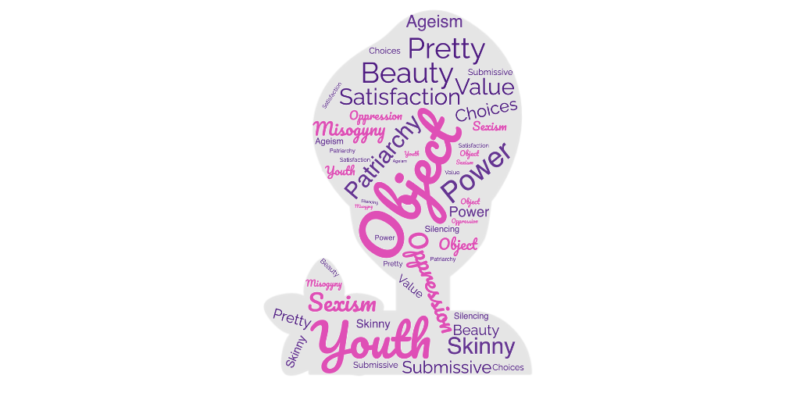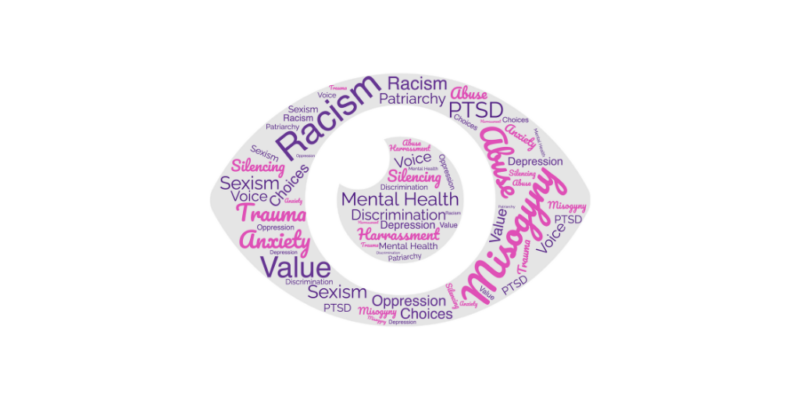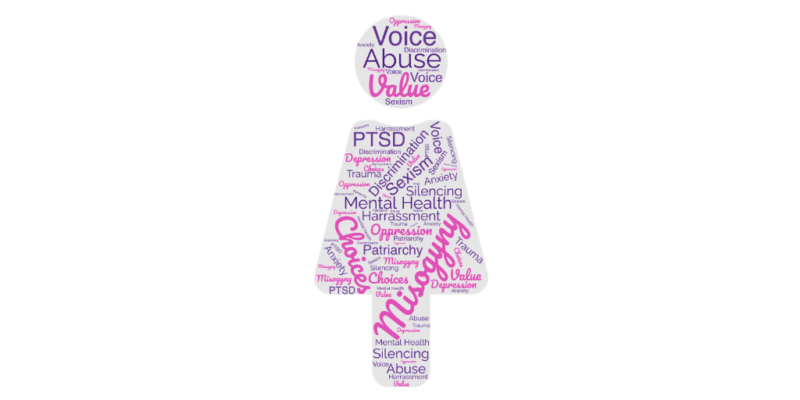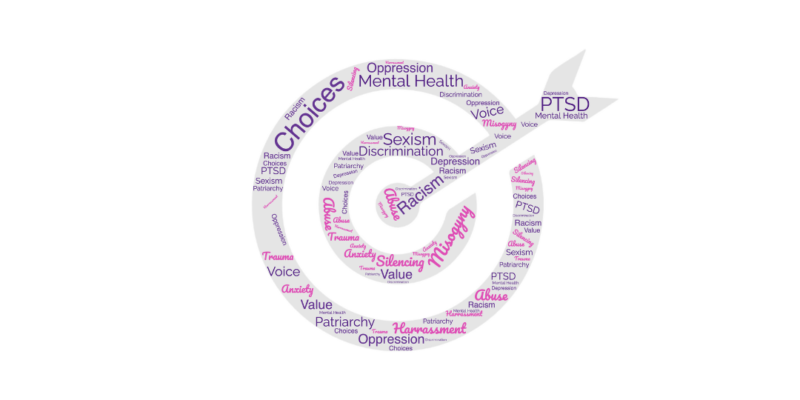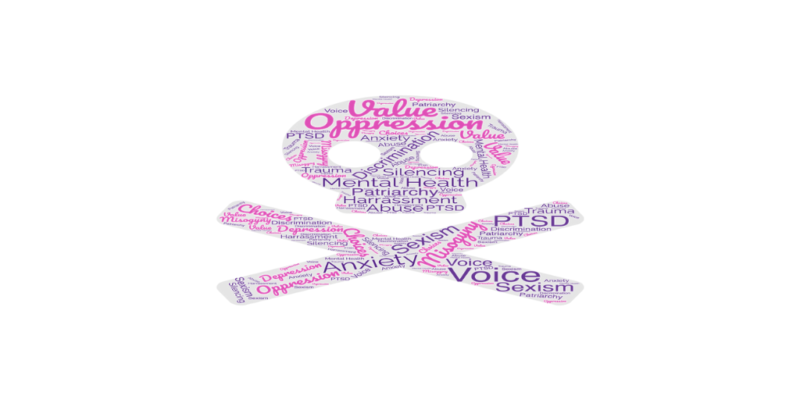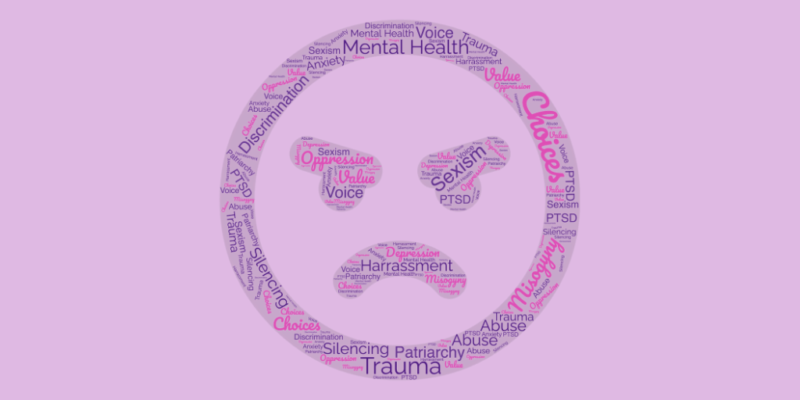The values, norms, standards of behavior and hierarchies of the United States are patriarchal, and this means that all men are privileged over all women. This privilege creates harm and causes oppression. This harm is exponential for women with intersectional identities, including those that experience racism, ageism, classism, cis-genderism, and heterosexism.
Harmful patriarchal norms are so much a part of our everyday life that without intentional awareness, it may be hard to notice. This would not be an issue except that it is an issue. For groups privileged by patriarchy, it may be difficult to see that there is indeed a problem. Patriarchy has prescribed gender norms that when outside awareness, accepted and internalized, support the perpetuation of a patriarchal society, continues the cycle of oppression and has the potential to damage to all women’s physical and mental health.
Even with an understanding of how internalized oppression works to perpetuate patriarchy by instilling internalized misogyny within women, it can still be difficult to conceptualize another way of being that is better for all women and all of our society.
As a first step, people that chose to be a part of the solution may work to increase mindfulness and awareness and look deeper at generally accepted gender norms to examine the underlying factors that may support patriarchy and harm women.
Lets examine how valuing beauty and youth is a patriarchal supporting norm as it relates to the choice of a mate.
Women’s youth and beauty are valued in patriarchal society because these attributes are in service to men as their sexual partners. The acquisition of young and beautiful women also serves men’s egos as a younger partner is perceived as a status symbol. In addition, relationships with much younger women often have a power inequity. A study published in the journal, Psychological Science, Sex Differences in Mate Preferences Across 45 Countries: A Large-Scale Replication reported that men prefer attractive and young mates and women prefer older men with financial prospects. An interesting finding supports the idea that these mate choices are related to power inequality and patriarchal norms. The study found that cross-culturally, as gender equality increases, men and women both have mates closer to their own age.
As men and women make the choice to enter these relationships with large age differentials, they may be sacrificing their future relationship satisfaction. Researchers have found that age gaps of less than 10 years increase relationship satisfaction. Another study found that marital satisfaction declines with the duration of the marriage, for both men and women in couples with larger age gaps. For women, the later dissatisfaction may impact mental health. One Korean study found that when the age gap was greater than 3 years, the severity of women’s depression increases as the gap increased by every 1-2 years.
What this research suggests is that women that chose older mates instead of their equal may do so because they have bought in to patriarchal norms regarding their own competence, agency, and power and therefore desire to trade beauty and youth for financial considerations. Men that choose younger mates may buy into the normative nature of male dominance and believe women have less value as they age.

